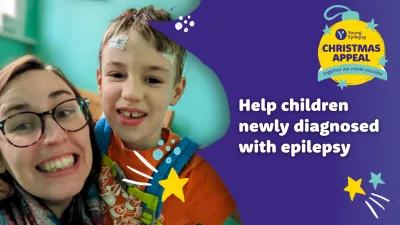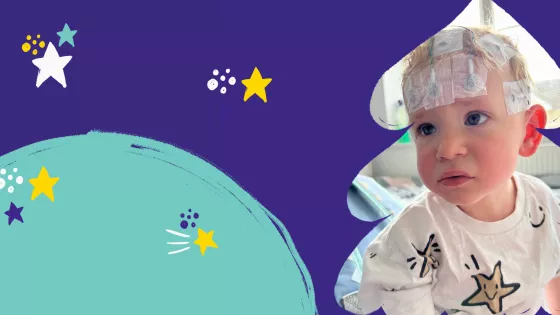Filling the Void
Receiving a diagnosis of epilepsy can come as a shock, leaving families feeling frightened, lonely and overwhelmed. Children and young people need help and support understanding their new diagnosis and how it will impact their lives. Help provide the support children need when they need it most.
The Importance of Trusted Information
When a child is diagnosed with epilepsy, families often feel overwhelmed and uncertain about the future. Trusted information and guidance are essential for newly diagnosed children, young people, and their families. Our goal is to develop easy-to-use, accessible, relevant, and evidence-based information to ensure no child or young person feels alone when they receive their diagnosis.
As part of our commitment to producing trusted health information, we have recently been certified under the PIF TICK scheme. The scheme is the only independently-assessed certification for both print and digital health information, and shows our information is produced to the highest possible standards.

Clinical Guidelines and Best Practices
Both NICE (National Institute for Health and Care Excellence) and SIGN (The Scottish Intercollegiate Guidelines Network) clinical guidelines emphasise the importance of providing information to children and young people with health conditions. These guidelines recommend that information should be clear, age-appropriate, and tailored to the needs of the individual. For example, the NICE guideline on epilepsies in children, young people, and adults focuses on information and support, while the SIGN guideline (SIGN 159) highlights the provision of information and areas of concern for children and young people with epilepsy and their carers.
Meeting the Information Needs of Young People
Research shows that young people with epilepsy need information on a variety of topics, including seizures, medication, risks, daily living, lifestyle choices, safety, employment, pregnancy, and contraception. It is crucial to provide information that is not only accurate but also engaging and easy to understand. Interactive activities and games can be particularly effective in increasing engagement among young people.
Supporting Parents and Carers
Parents and carers also need comprehensive and understandable information to support their children effectively. Studies have found that parents often seek additional information beyond what healthcare professionals provide, using the internet as a primary source. However, they face challenges in accessing timely and reliable information. Providing parents with clear, realistic, and focused information can help reduce their stress and improve their ability to support their children.
“You search for things online and you don’t know what you’re looking at, whether it can be trusted or not. More needs to be done to share information about different types of epilepsy and the things that can occur after a seizure.”
Mum of Solomon, Nicole
Tailored Information for Better Outcomes
Tailoring information to the specific needs of children and young people with epilepsy is essential. This includes considering factors such as age, gender, and the severity of the condition. Providing information at the right time and in a structured manner can help young people manage their condition more effectively and improve their health outcomes.
Our Commitment
At Young Epilepsy, we are committed to ensuring that every young person with epilepsy has access to the information they need to thrive. By developing resources that are evidence-based and tailored to the needs of children and young people, we aim to empower families and improve the lives of those affected by epilepsy.

Double Your Impact This Christmas
No parent should have to face that fear alone. This Christmas, you can ensure they don’t have to. Your support can make a big impact. One donation, twice the impact! The Big Give is the UK’s biggest match funding campaign.
Every donation you make will be DOUBLED between the 3 and 10 December. Your donation will help ensure children and young people diagnosed with epilepsy get the vital support they need when they need it most.


